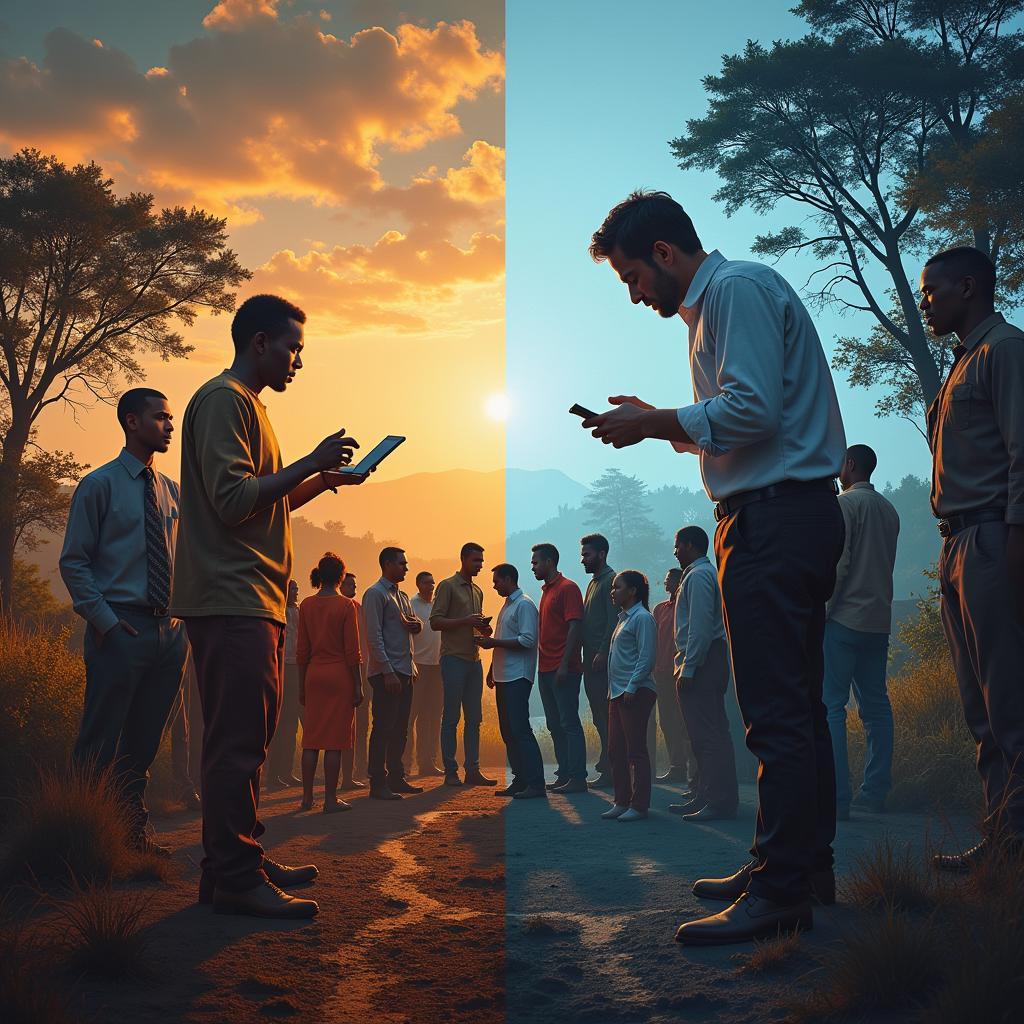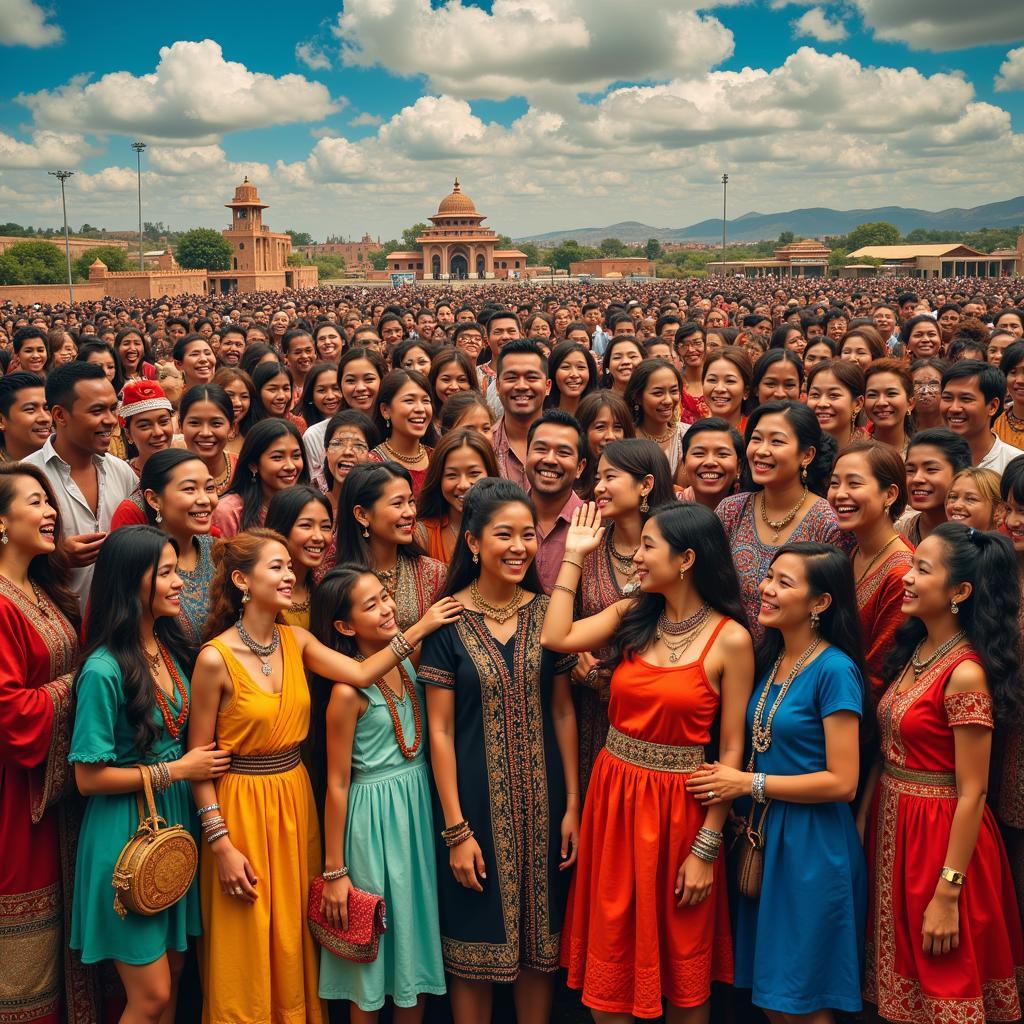Our society is at a crossroads, facing unprecedented challenges and opportunities that are reshaping the very fabric of our world. From the rise of globalization and technological advancements to the increasing interconnectedness of people and cultures, the 21st century has ushered in an era of profound transformation, leaving many feeling uncertain about the future.
This sense of being at a crossroads is amplified by the complex issues we grapple with: climate change, social inequality, political polarization, and the erosion of trust in institutions. These challenges transcend geographical boundaries and demand collective action. However, amidst these complexities, we must also recognize the extraordinary potential for positive change.
The Crossroads of Technology and Humanity
Technological advancements, particularly in artificial intelligence, biotechnology, and communication, have revolutionized our lives in ways unimaginable just a few decades ago. While these innovations offer immense potential for progress, they also present ethical dilemmas and societal challenges that require careful navigation.
One of the most pressing concerns is the digital divide, where unequal access to technology exacerbates existing inequalities. Bridging this gap is crucial for ensuring that everyone can benefit from the opportunities of the digital age.
 The Digital Divide: A Global Challenge
The Digital Divide: A Global Challenge
Furthermore, the increasing automation of labor raises concerns about job displacement and the need for workforce reskilling. As we stand at this crossroads, it is imperative to harness technology for good, ensuring that it empowers individuals, fosters inclusivity, and creates a more just and equitable society.
The Crossroads of Globalization and Cultural Identity
Globalization has interconnected the world like never before, facilitating the exchange of goods, services, and ideas across borders. This interconnectedness has brought about economic growth and cultural diffusion, enriching our lives with diverse perspectives. However, it has also sparked anxieties about cultural homogenization and the erosion of local traditions.
 Celebrating Cultural Exchange in a Globalized World
Celebrating Cultural Exchange in a Globalized World
Finding a balance between preserving cultural identity and embracing global interconnectedness is essential. Societies need to create inclusive spaces where different cultures can coexist and interact respectfully, fostering dialogue and understanding.
The Crossroads of Environmental Sustainability and Economic Growth
The pursuit of economic growth has often come at the expense of the environment, leading to climate change and ecological degradation. We are now at a critical juncture where we must prioritize sustainability to ensure the well-being of future generations.
Transitioning to a low-carbon economy, investing in renewable energy sources, and promoting sustainable consumption patterns are crucial steps in the right direction. This requires a collective effort from governments, businesses, and individuals to adopt environmentally responsible practices.
 Investing in a Sustainable Future: The Power of Green Energy
Investing in a Sustainable Future: The Power of Green Energy
Navigating the Crossroads: A Call for Collective Action
The challenges and opportunities presented by this era of unprecedented change demand collective action. We must move beyond individualism and embrace a spirit of cooperation, recognizing that our interconnectedness necessitates shared responsibility for creating a better future.
Building a society that thrives at the crossroads requires fostering empathy, promoting dialogue, and embracing diversity. It demands a commitment to social justice, environmental sustainability, and ethical leadership.
The [Horn Society] provides a platform for fostering understanding and cooperation among diverse communities. Similarly, the [Hebron Historical Society] reminds us of the importance of learning from the past as we navigate the complexities of the present.
Conclusion
As we stand at this crossroads, we have a unique opportunity to shape a future that is more just, equitable, and sustainable. By embracing the values of peace, cooperation, and understanding, we can navigate the challenges ahead and create a world where everyone can thrive. Let us seize this moment and work together to build a brighter future for all.
FAQs
1. What does it mean to say that society is at a crossroads?
This phrase signifies that humanity faces critical choices and decisions that will have a profound impact on the future, influenced by factors like globalization, technology, and climate change.
2. What are some of the key challenges facing society today?
Some of the most pressing challenges include climate change, social and economic inequality, political polarization, and the ethical implications of emerging technologies.
3. How can individuals contribute to positive change?
Individuals can make a difference by staying informed, engaging in constructive dialogue, advocating for social justice, adopting sustainable practices, and supporting organizations working towards a better future.
4. What role does education play in navigating these challenges?
Education is paramount in equipping individuals with the critical thinking skills, knowledge, and empathy needed to address complex issues, promote understanding, and become responsible global citizens.
5. What can we learn from history as we face the future?
History offers valuable lessons about the consequences of division, the importance of cooperation, and the resilience of the human spirit in overcoming adversity. Understanding the past can guide us in making informed decisions for the future.
Need Further Assistance?
For further information and support in navigating these complex times, please contact us:
Phone: 02043854663
Email: [email protected]
Address: Khu 34, Bắc Giang, 260000, Việt Nam
Our dedicated team is available 24/7 to provide guidance and resources. Explore other insightful articles and resources on our website, including our [law and society minor] program. Let’s work together to create a more peaceful and just world.